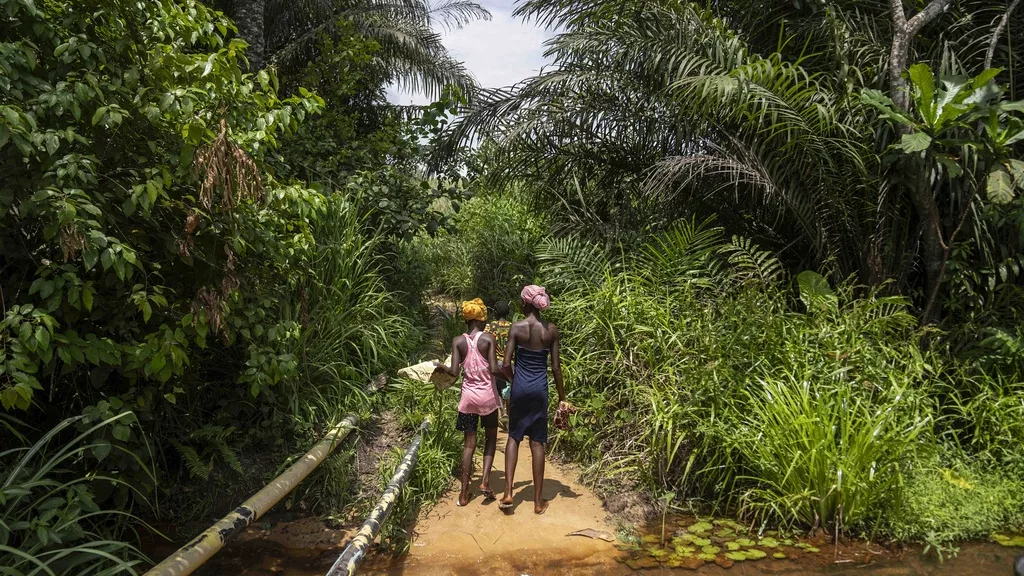Oil Drilling in DRC:
In the heart of the western Democratic Republic of Congo (DRC), Adore Ngaka’s daily view is marred by the imposing presence of oil drills on the path to his home. A consequence of the expansion of oil activities nearly a decade ago, Ngaka laments the toll it has taken on his village of Tshiende. The soil stands polluted, crops withered, and the family is forced to dip into savings for survival.
This environmental plight extends beyond Tshiende. The DRC, rich in minerals and with significant oil reserves, is considering auctioning 30 oil and gas blocks across the country. While leaders argue for economic growth to alleviate poverty, concerns arise from communities, rights groups, and environmental watchdogs who fear expanded drilling will harm landscapes and human health.
Perenco, a Franco-British hydrocarbon company, commenced drilling in Moanda territory in 2000. Residents report worsening pollution, soil degradation, and air pollution from flaring – the intentional burning of natural gas near drilling sites. Despite claims of meeting international standards by Perenco, the Congolese government’s limited control raises skepticism.
The DRC is home to the Congo Basin rainforest, a vital carbon sink capturing 3% of global emissions. Several parcels up for auction overlap with protected peatlands and rainforests, including Virunga National Park, housing rare gorillas.
Greenpeace Africa’s Mbong Akiy Fokwa Tsafak stresses that any new oil or gas project worldwide exacerbates the climate and nature crisis. Perenco’s activities, instead of alleviating poverty, have allegedly degraded ecosystems and burdened communities, according to environmental advocates.
Although the DRC is a major cobalt producer for electric vehicle batteries, environmentalists argue for tapping into renewable energy sources like solar and small-scale hydroelectricity. However, the Congolese Oil and Gas Minister, Didier Budimbu, insists on maintaining fossil fuels until the country reduces dependence in the long term.
In Moanda, near the drilling sites, residents speak of pipes breaking, oil spills, and the adverse impact on health and agriculture. Perenco claims quick responses to leaks but faces accusations of neglecting root problems. Between 2012 and 2022, the company reportedly burned over 2 billion cubic meters of natural gas, contributing to environmental concerns.
Chemical dumping allegations in Kinkazi further highlight environmental degradation. Perenco refutes claims, emphasizing past actions by a different company. Villagers, fearing repercussions, share stories of inadequate compensation and lasting damage to their lands, pushing them to alternative income sources like charcoal production.
Perenco defends its contributions to Moanda, citing investments in education, road construction, and healthcare access. However, villagers dispute the benefits, citing inadequacies in the dispensary and insufficient compensation for oil spill damages.
As the DRC seeks bidders for 27 oil blocks, concerns about transparency in the auction process persist. Environmentalists and local advocacy groups demand resolution of existing issues before inviting more companies. With the nation grappling with endemic conflicts and a history of corruption, the plight of impoverished communities underscores the complexity of balancing economic development and environmental preservation.



















